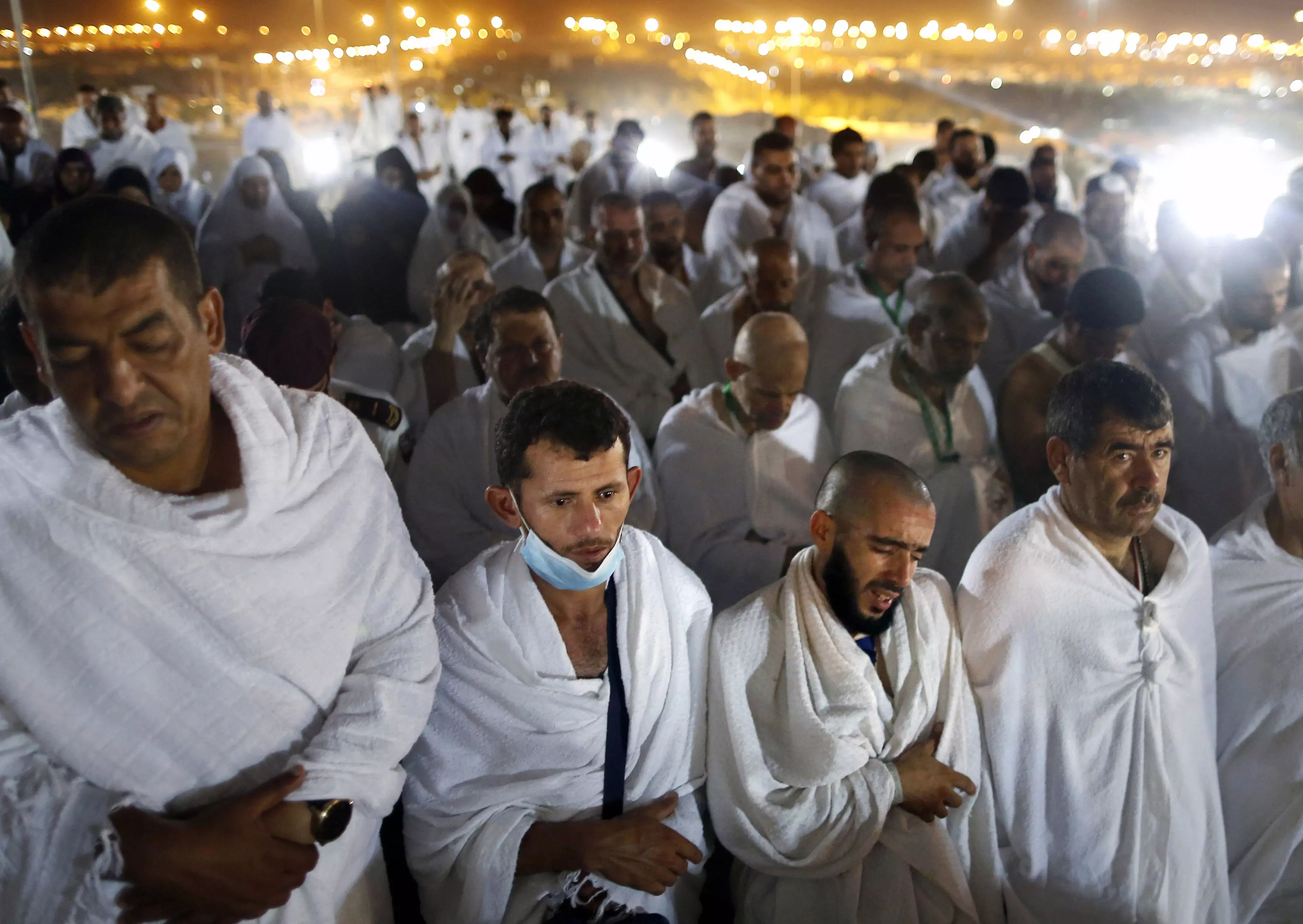Heatwave Worst Challenge Yet For Pilgrims This Summer

In Saudi Arabia, amidst the culmination of the Hajj pilgrimage at the Grand Mosque in Mecca, nearly two million Muslim pilgrims have faced unprecedented challenges exacerbated by extreme weather conditions. With temperatures soaring above 51 degrees Celsius (124 degrees Fahrenheit), the pilgrimage has turned into a test of endurance and survival for many.
Reports from various sources have indicated a staggering toll on human lives. According to Egyptian medical and security sources cited by Reuters, the number of Egyptians who have tragically lost their lives during the pilgrimage has risen sharply. Initially reported at 307 deaths, the toll has now reached at least 530, with an additional 40 individuals still unaccounted for. These figures reflect not only the severity of the conditions but also the immense strain placed on medical and emergency response systems.
The situation in Mecca underscores the lethal impact of heat waves that have swept across multiple regions globally. In recent years, heat waves have become increasingly frequent and intense, posing significant health risks to populations worldwide. Countries such as India, Pakistan, and parts of Europe have witnessed similar heat-related fatalities, further highlighting the urgent need for effective measures to mitigate the effects of extreme temperatures.
In India, for instance, the summer of 2023 saw a devastating heat wave that claimed hundreds of lives, particularly among the elderly and vulnerable populations. Cities like Delhi recorded temperatures exceeding 48 degrees Celsius (118 degrees Fahrenheit), leading to heatstroke and dehydration-related deaths despite efforts to provide cooling centers and hydration stations.
Pakistan, too, has grappled with severe heat waves that have overwhelmed healthcare facilities and strained resources. Karachi, the country's largest city, has experienced recurrent heat waves with temperatures surpassing 45 degrees Celsius (113 degrees Fahrenheit), resulting in numerous fatalities and prompting local authorities to issue heat alerts and advisories.
In Europe, traditionally temperate regions have not been spared from the impact of heat waves exacerbated by climate change. Countries such as France and Spain have faced episodes of extreme heat, setting record high temperatures that have posed health risks, particularly to the elderly and those with pre-existing medical conditions. The 2019 European heat wave, for example, led to thousands of excess deaths across the continent and prompted urgent calls for enhanced preparedness and adaptation strategies.
The challenges posed by heat waves extend beyond immediate health risks to encompass broader societal and economic impacts. Agriculture, for instance, suffers significant losses during periods of extreme heat, affecting crop yields and food security. Infrastructure, particularly in urban areas, faces heightened strain as energy demands surge for cooling purposes, placing additional pressure on power grids and contributing to environmental concerns.
Addressing the impacts of heat waves requires a multifaceted approach that includes early warning systems, improved urban planning to mitigate urban heat islands, and enhanced public health strategies. Governments and communities must prioritize investments in climate-resilient infrastructure and sustainable practices to reduce greenhouse gas emissions and limit the exacerbation of extreme weather events.
As the Hajj pilgrimage in Mecca draws to a close amidst tragic losses, it serves as a poignant reminder of the vulnerability of populations to extreme heat and the urgent need for global cooperation in climate action. The experiences of pilgrims in Mecca echo those of individuals affected by heat waves in diverse regions, underscoring the universal nature of the challenge and the imperative to build resilience in the face of a changing climate.
The intersection of climate change and heat waves poses significant humanitarian, health, and economic challenges worldwide. The tragic loss of lives during the Hajj pilgrimage in Mecca highlights the need for proactive measures to protect vulnerable populations and build sustainable, resilient communities capable of withstanding the impacts of extreme weather events.

